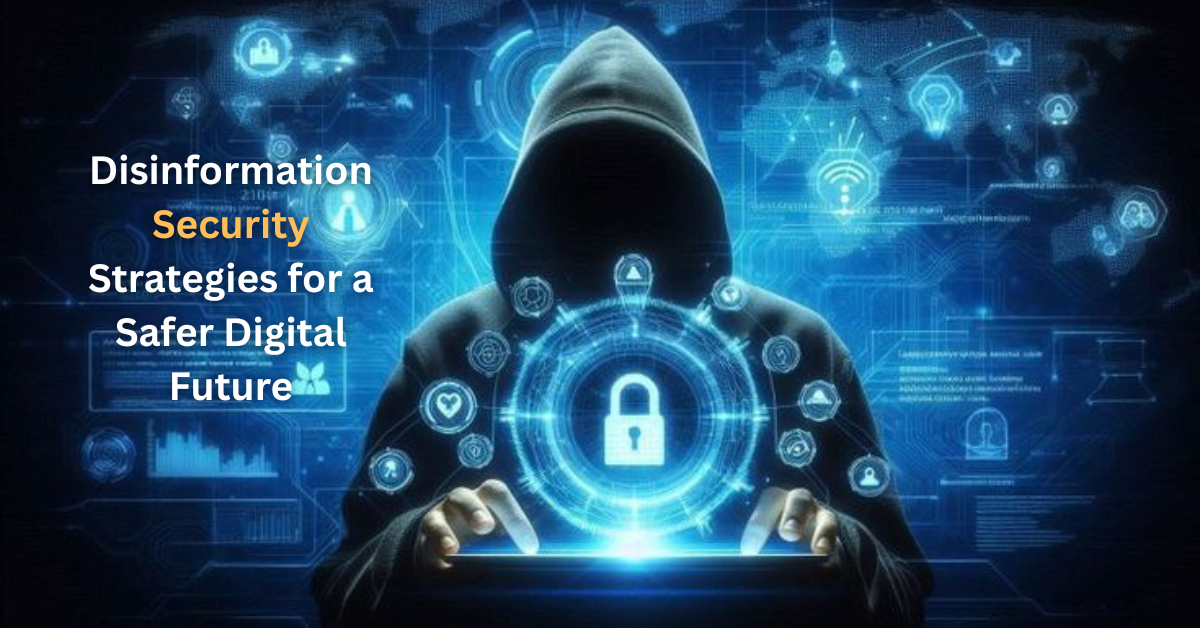In an age where digital interactions shape our knowledge, opinions, and even our daily decisions, the concept of Disinformation Security has become more critical than ever. The digital space is overflowing with information, yet much of it can be misleading or deliberately crafted to manipulate. For readers of Cyprus Magazine, understanding this modern challenge is not just about protecting personal data but also about safeguarding collective trust in media, institutions, and society.
Disinformation does not only affect politics or global narratives; it impacts businesses, education, healthcare, and even the way communities interact. By diving deeper into the layers of disinformation security, we can understand how to protect ourselves from manipulation, how to identify red flags, and how to foster resilience in an increasingly digital-first world.
Understanding the Concept of Disinformation Security
Disinformation security refers to strategies, tools, and practices aimed at preventing the spread of false or misleading information. Unlike misinformation, which may spread unintentionally, disinformation is often carefully designed to mislead, exploit, or influence public perception.
Securing ourselves from disinformation is not simply about debunking false claims but also about building systems that minimize their impact. It combines digital literacy, cybersecurity awareness, and ethical communication practices.
The Digital Age and the Rise of Disinformation
The rapid expansion of social networks and online media has given rise to an environment where false narratives spread faster than ever before. News once vetted by professional editors now competes with instant posts, videos, and memes shared without verification.
This surge has led to a critical need for disinformation security frameworks. Modern users are not just passive consumers; they are also active distributors. The speed of sharing often bypasses reflection, making the control of false content both complex and urgent.
Why Disinformation Security Matters for Communities
Disinformation impacts communities by eroding trust, polarizing opinions, and weakening institutions. It influences elections, damages reputations, and even creates panic during crises.
For readers of Cyprus Magazine, understanding these risks is essential, as smaller nations are often more vulnerable to targeted campaigns due to their tight-knit communities and concentrated media ecosystems. Protecting against disinformation means protecting cultural harmony and national identity.
Tools and Techniques to Strengthen Disinformation Security
Strong disinformation security requires proactive approaches:
Media Literacy Programs
- Encourage critical thinking about sources
- Teach communities how to cross-check information
- Promote fact-checking practices at schools and workplaces
Cybersecurity Measures
- Secure communication platforms to prevent manipulated content
- Use encryption to protect information integrity
- Monitor suspicious activities that indicate coordinated disinformation attacks
Collaborative Fact-Checking
Partnerships between media outlets, NGOs, and educational institutions help verify facts faster. Creating a community of trusted fact-checkers enhances resilience.
Real-World Impact of Disinformation Campaigns
The world has witnessed cases where disinformation has sparked economic downturns, political unrest, and public confusion during health crises. False medical advice spreading online has endangered lives, while fabricated political stories have shifted voter opinions dramatically.
For Cyprus and the Mediterranean region, localized disinformation campaigns can affect tourism, trade, and diplomacy. Hence, the security of narratives becomes a national priority.
The Role of Technology in Combating Disinformation
Technology plays a double role. On one hand, artificial intelligence can generate deepfakes and automate large-scale disinformation campaigns. On the other hand, advanced tools are being designed to detect manipulated content, analyze suspicious patterns, and flag misleading narratives.
The development of blockchain-based systems for news verification is a promising innovation, offering traceable proof of authenticity for digital content.
Building Resilience through Education
Education remains the most powerful defense against disinformation. Schools, universities, and lifelong learning institutions should integrate digital literacy and disinformation awareness into their curricula.
Communities that understand how to question sources, identify bias, and separate facts from narratives become naturally resistant to manipulation.
Disinformation in Business and Corporate Environments
Companies face risks when false narratives circulate about their products, practices, or executives. A single viral post can harm brand reputation, lower consumer confidence, and cause financial loss.
To counter these threats, corporations must develop crisis communication strategies that rely on transparent updates, strong customer engagement, and partnerships with trusted media platforms.
Disinformation in Politics and Public Policy
Political systems are often prime targets. False stories can sway opinions, undermine trust in leaders, and influence policy-making processes. Governments around the world now treat disinformation as a national security issue.
Establishing specialized task forces, working with independent watchdogs, and engaging citizens in awareness campaigns are among the most effective strategies.
The Psychological Impact of Disinformation
False information affects not only society but also individuals on a psychological level. Continuous exposure to contradictory narratives creates confusion, fatigue, and cynicism. This phenomenon, sometimes referred to as “information disorder,” weakens the ability to make rational decisions.
Promoting mental resilience is as important as technological defenses. Encouraging mindful media consumption and reducing exposure to unreliable platforms are practical steps toward disinformation security.
Steps to Protect Yourself from Disinformation
Verify Before Sharing
Pause and check the source before forwarding any message.
Cross-Check with Reputable Outlets
Compare multiple trusted sources before forming an opinion.
Use Fact-Checking Platforms
Websites and independent agencies can confirm the authenticity of content.
Develop Critical Thinking
Ask questions like: Who created this content? What is their motive?
The Global Movement Toward Disinformation Security
Worldwide, alliances are forming to address the disinformation challenge. International cooperation among governments, academic institutions, and technology firms is growing. By sharing research, developing joint policies, and fostering digital literacy, the world is slowly moving toward a safer information environment.
The Future of Disinformation Security
The future will likely see both stronger disinformation techniques and more advanced defense mechanisms. Artificial intelligence will play a central role, not only in creating sophisticated disinformation but also in dismantling it.
Societies that prioritize resilience, transparency, and cooperation will stand stronger against the storm of misleading narratives.
Frequently Asked Questions
What is the difference between misinformation and disinformation?
Misinformation is false content spread unintentionally, while disinformation is deliberately crafted to deceive or manipulate.
Why is disinformation considered a security issue?
It can destabilize societies, influence politics, damage economies, and create mistrust, making it a serious national and global security challenge.
How can individuals contribute to disinformation security?
By verifying content, avoiding impulsive sharing, and promoting media literacy within their communities, individuals become frontline defenders.
What role does technology play in detecting disinformation?
Technology can analyze data patterns, detect manipulated visuals, and trace suspicious campaigns, offering critical tools for defense.
Can businesses protect themselves from disinformation?
Yes, through transparent communication, reputation management strategies, and partnerships with credible platforms, businesses can mitigate risks.
Conclusion
Disinformation security is not an isolated concern; it is a collective responsibility that touches every individual, community, and institution. In a digital-first era, protecting ourselves from false narratives requires vigilance, education, and collaboration.
For readers of Cyprus Magazine, embracing disinformation security means strengthening the very foundation of trust in society. With informed communities, transparent institutions, and innovative tools, we can create a digital landscape where truth prevails over manipulation.




